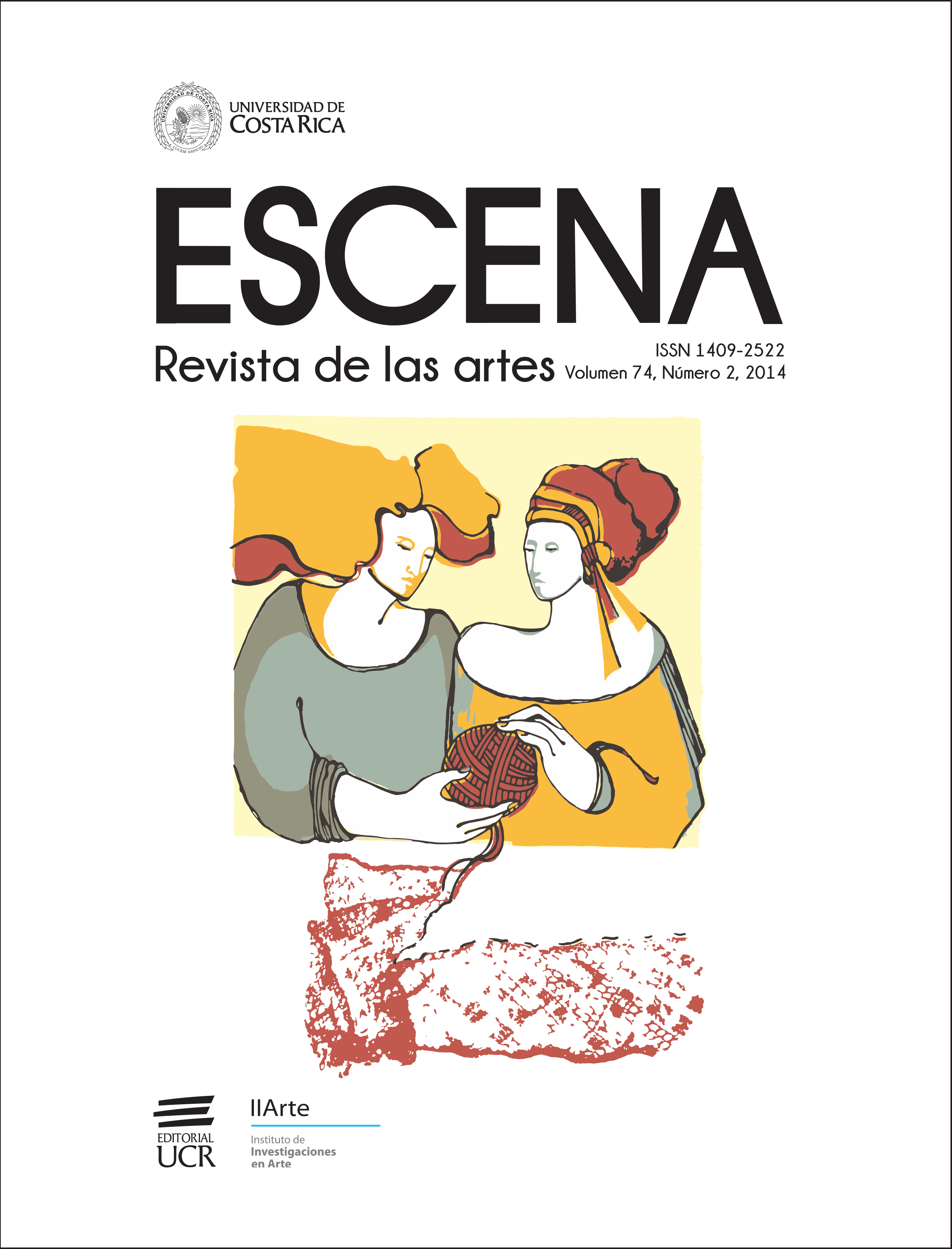Abstract
The quest for connection with the spiritual dimension of existence persists as one of the vital concerns of the human being since the dawn of history. This need manifests itself in the major role that religionhas assumed within the human collectives. Nonetheless, in the heat of Modernity, reason has progressively displaced religious faith as the guiding principle for individual and social progress. The loss of influence of the narrative par excellence that has attended the spiritual inquietudes of society, translates in Postmodernity in an existential anxiety that impregnates all of its cultural creations, including cinema. This form of artistic expression, with its outstanding power of representation of life, offers a way for creators with the most diverse personalities and visions, to address this spiritual distress that marksthe postmodern individual. From the fantastic-mythological commercial productions of Guillermo del Toro, to the most poetic formalist proposals of Bresson, Tarkovski and Dreyer, through the visceral provocations of Gaspar Noé, cinema presents itself as a mean with unlimited possibilities to apprehend
the preoccupations of human beings in an era in which dissociation between earthly passions and the transcendent dimension of life is more evident than ever.
References
Castro-Gómez S. y R. Grosfoguel (Comp.). (2007). El giro decolonial: reflexiones para una diversidad epistémica más allá
del capitalismo global. Bogotá: Siglo del Hombre Editores.
Chioua, B., Maraval, V., Delbosc, O., Missonnier, M. (Productores), y Noé, G. (Director). (2009). Enter the Void [Película]. Francia: Fidélité Films y Wild Bunch.
Colson, C. (Productor), y Boyle, D. (Director). (2009). Slumdog millionaire [Película]. Estados Unidos: Fox Searchlight Pictures.
Danto, A. (2005). El Abuso de la Belleza. La Estética y el Concepto del Arte. Barcelona: Paidós Ibérica.
Del Toro, G. (Productor y Director), Cuarón, A., Torresblanco, F., Navarro, B. y Augustín, A. (Productores). (2006). El Laberinto del Fauno [Película]. España: Telecinco Cinema.
Dreyer, C. (Productor y Director). (1955). Ordet [Película]. Dinamarca: Palladium Film.
Dreyer, C. (1999). Reflexiones Sobre mi Oficio. Barcelona: Paidós Ibérica.
Dussel, E. (1994). 1492: El Encubrimiento del Otro: Hacia el Origen del “Mito de la Modernidad”: Conferencias de Frankfurt, Octubre de 1992. La Paz, Bolivia: Plural Editores.
Fermín, F. (1994). Modernidad y Posmodernidad en el Arte. Buenos Aires: Editorial Fundación de Arte Ana Torre.
Finerman, W., Tisch, S., Starkey, S., y Newirth, C. (Productores), y Zemeckis, R. (Director). 1994. Forrest Gump [Película]. Estados Unidos: Paramount Pictures.
Giedion, S. (1985). El Presente Eterno: los Comienzos del Arte (M. L. Balseiro Fernández-Campoamor, Trad.). Madrid: Alianza Editorial.
Green, S., Pohlad, B., Pitt, B., Gardner. D., y Hill. G (Productores), y Malick, T. (Director). 2011. The Tree of Life [Película]. Estados Unidos: River Road Entertainment.
Hanks, T., Rapke, J., Starkey, S., y Zemeckis, R. (Productores), y Zemeckis, R. (Director). 2000. Cast Away [Película]. Estados Unidos: Twentieth Century Fox.
Hertenstein, M. (2008). Introduction: Cinema in the Biblical Sense. En Morefield, K. (ed.) Faith and Spirituality in Masters of World Cinema (pp.viii-xx). Cambridge: Cambridge Scholars Publishing.
Ierardo, E. (2007). El Agua y el Trueno: Ensayos sobre Arte, Naturaleza y Filosofía. Argentina: Prometeo Libros.
Jinks, D., Cohen, B., y Zanuck, R. D. (Productores), y Burton, T. (Director). (2003). Big Fish [Película]. Estados Unidos: Columbia Pictures.
Kubrick, S. (Productor y Director). (1968). 2001: A Space Odyssey [Película]. Estados Unidos: Metro-Goldwyn-Mayer.
Bodard, M. (productor). (1966). Au Hasard Balthazar [Película]. Francia: Argos Films.
Mirzoeff, N. (2003). Una introducción a la cultura visual. Barcelona: Paidós.
Navarro, F. (2013). El Tiempo Detenido. La Percepción del Tiempo en la Expresión Artística del Primer Renacimiento Italiano. Laboratorio de Arte. Una introducción a la cultura visual (25), pp. 117- 131. Recuperado el 25 de julio de 2015
de: http://institucional.us.es/revistas/arte/25/vol_I/art_5.pdf
Netter, G., Lee, A., y Womark, D. (Productores), y Lee, A. (Director). (2012). Life of Pi [Película]. Estados Unidos: Fox
Pictures.
Read, H. (1957). Imagen e Idea. La Función del Arte en el Desarrollo de la Conciencia Humana. México D.F.: Fondo de Cultura Económica.
Riambau, E. (2011). Hollywood en la Era Digital. De Jurassic Park a Avatar. Madrid: Cátedra.
Schrader, P. (1972). Transcendental Style in Film: Ozu, Bresson, Dreyer. Nueva York: Da Capo Press.
Silver, J. (Productor) Wachowski, A., y Wachowski, L. (Directores). (1999). The Matrix [Película]. Estados Unidos: Warner Brothers.
Solaz, L. (2003, mayo). Cine Postmoderno. Revista En Cadena Dos, (39). Recuperado el 26 de julio de 2013 ,de http://www.encadenados.org/n39/cine_postmoderno.
html
Tarkovski, A.. (2002). Esculpir en el Tiempo. Reflexiones sobre Arte, la Estética y la Poética del cine (E. Banús Irusta, Trad.). Madrid: RIALP Ediciones.
Vargas Llosa, M. (2009). La Civilización del Espectáculo. Revista Letras Libres. Recuperado el 25 de julio de 2013 de http://www.letraslibres.com/revista/convivio/la-civilizacion-del-espectaculo?page=full
Vásquez Rocca, A. (2011). La Posmodernidad. Nuevo Régimen de Verdad, Violencia Metafísica y Fin de los Metarrelatos. Nómadas, Revista de Ciencias Sociales y
Jurídicas. (29), 285-300.
Vergara, F. (Marzo 2010). Metáforas de la Modernidad Tardía: Nihilismo y «Muerte de Dios» en el Pensamiento Nietzscheano.
Revista Veritas, (22), pp. 93-119. Recuperado el 25 de julio de 2015 de: http://www.scielo.cl/pdf/veritas/n22/art05.pdf
Wibom, A.-L. (Productor), y Tarkovski, A. (Director). 1986. Offret [Película]. Suecia: Faragó Film.


